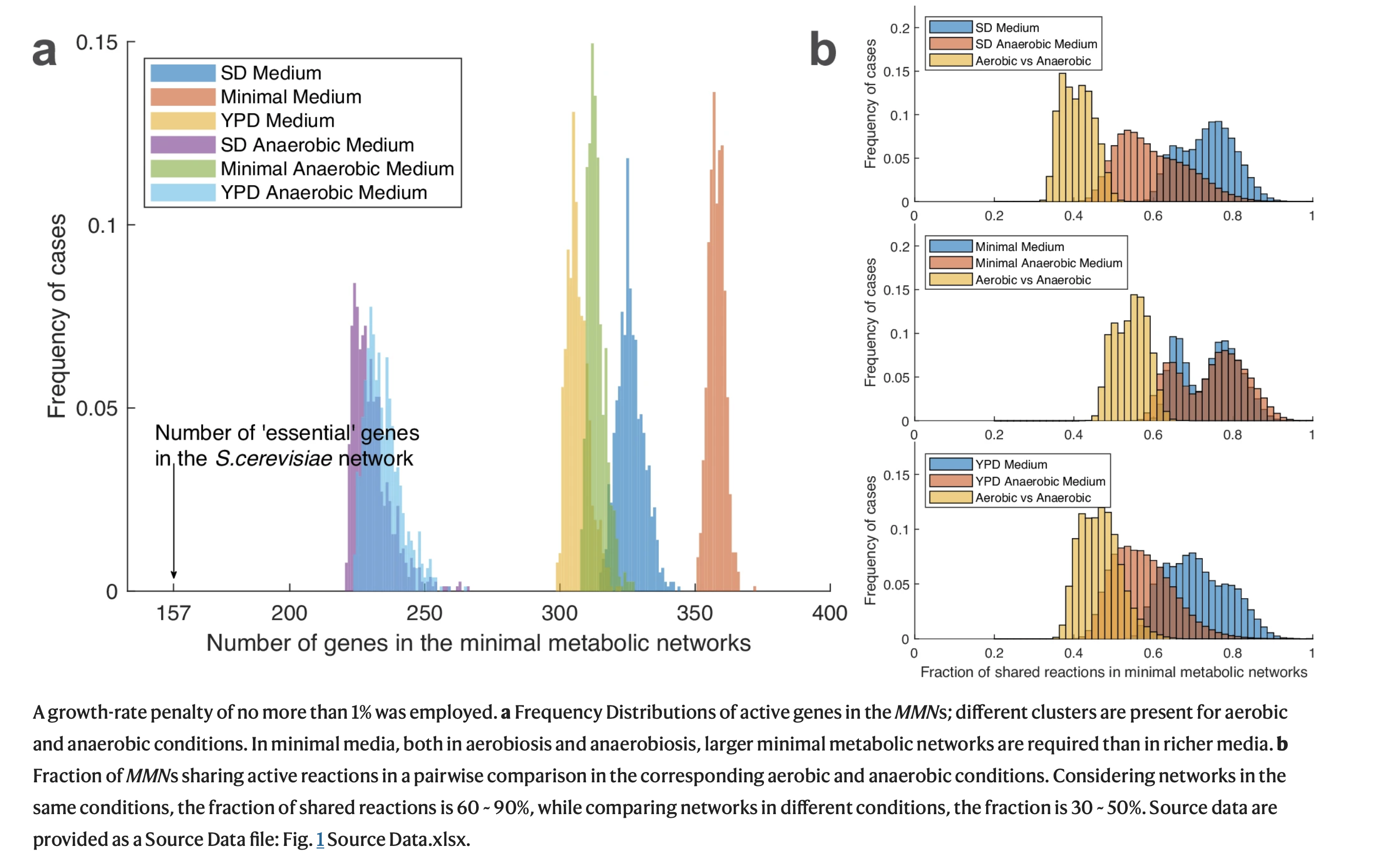
A paper in this week’s Nature Communications, by Prof Steve Oliver and former members of his lab, reports a major step toward improving the efficiency of industrial microbes. Generating a minimal metabolic network (MMN) should improve the production efficiency of engineered microbes by reducing their scope to divert the flow of metabolites away from any industrial product and toward their own growth.
The paper details the design of MMNs and reveals a new functional class of genes termed Network Efficiency Determinants (NEDs). These genes, whilst not essential, are rarely eliminated from an MMN since their removal significantly reduces network efficiency. The NED genes of yeast are usually single-copy and take part in exceptionally high numbers of interactions. Seven NEDs, the ‘Magnificent Seven’ are invariably present in yeast MMNs under all growth conditions specified. In vivo experiments show that deletion of any four of the ‘Magnificent Seven’ is a lethal event, explaining their ubiquitous presence. The team has designed MMNs for several organisms and made their pipeline available online for others to design their own synthetic biology workbenches.
